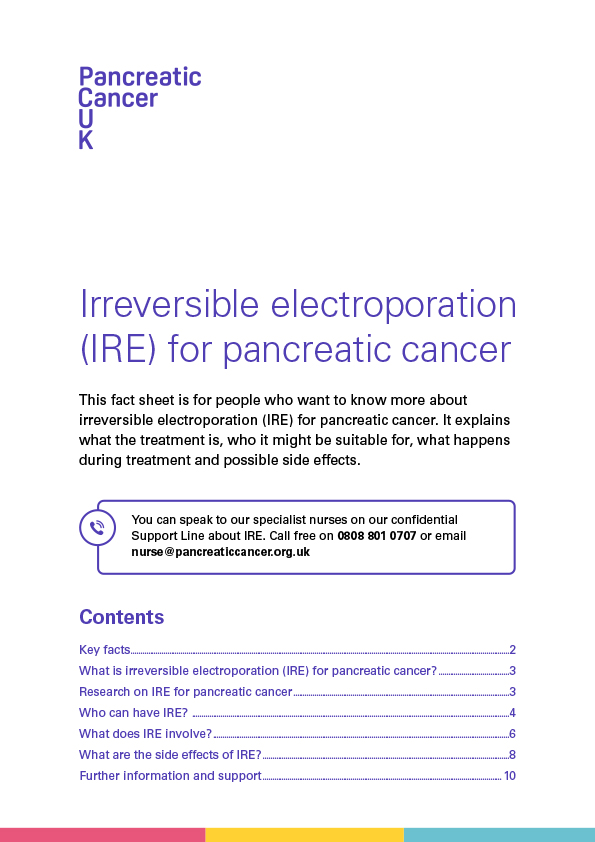Key facts
- During IRE treatment, needles are put in around the cancer. Electrical currents are then passed between the needles. These currents damage and destroy the cancer cells.
- NanoKnife® is the brand name for the machine used to deliver the treatment.
- There has not been much research into IRE for pancreatic cancer, so we only have limited information about how well it works.
- The National Institute for Health and Care Excellence (NICE) says that IRE should only be used in research looking at how well it works for pancreatic cancer.
- IRE may be suitable for some people with locally advanced pancreatic cancer. This is cancer that has spread just outside the pancreas, and can’t usually be removed with surgery.
- IRE may also be offered to a few people with borderline resectable pancreatic cancer where surgery to remove the cancer may be possible. IRE may be used to treat the cells around the edges of the tumour. The aim is to make removing the cancer as successful as possible. There is not much evidence on IRE used in this way, and we need more research into this.
- IRE aims to slow the growth of pancreatic cancer. This may help some people with locally advanced or borderline resectable cancer to live longer. It may also help treat symptoms such as pain.
- Before having IRE you will normally have three to six months of chemotherapy .
- IRE can cause side effects such as pain, feeling and being sick, and heartburn. These side effects don’t usually last long.
- IRE can cause other side effects, such as inflammation of the pancreas (pancreatitis)or more rarely, a blood clot in a vein.
- As there isn’t much research into IRE, if you are thinking about having it it’s really important you speak to your doctor before making any decisions.




